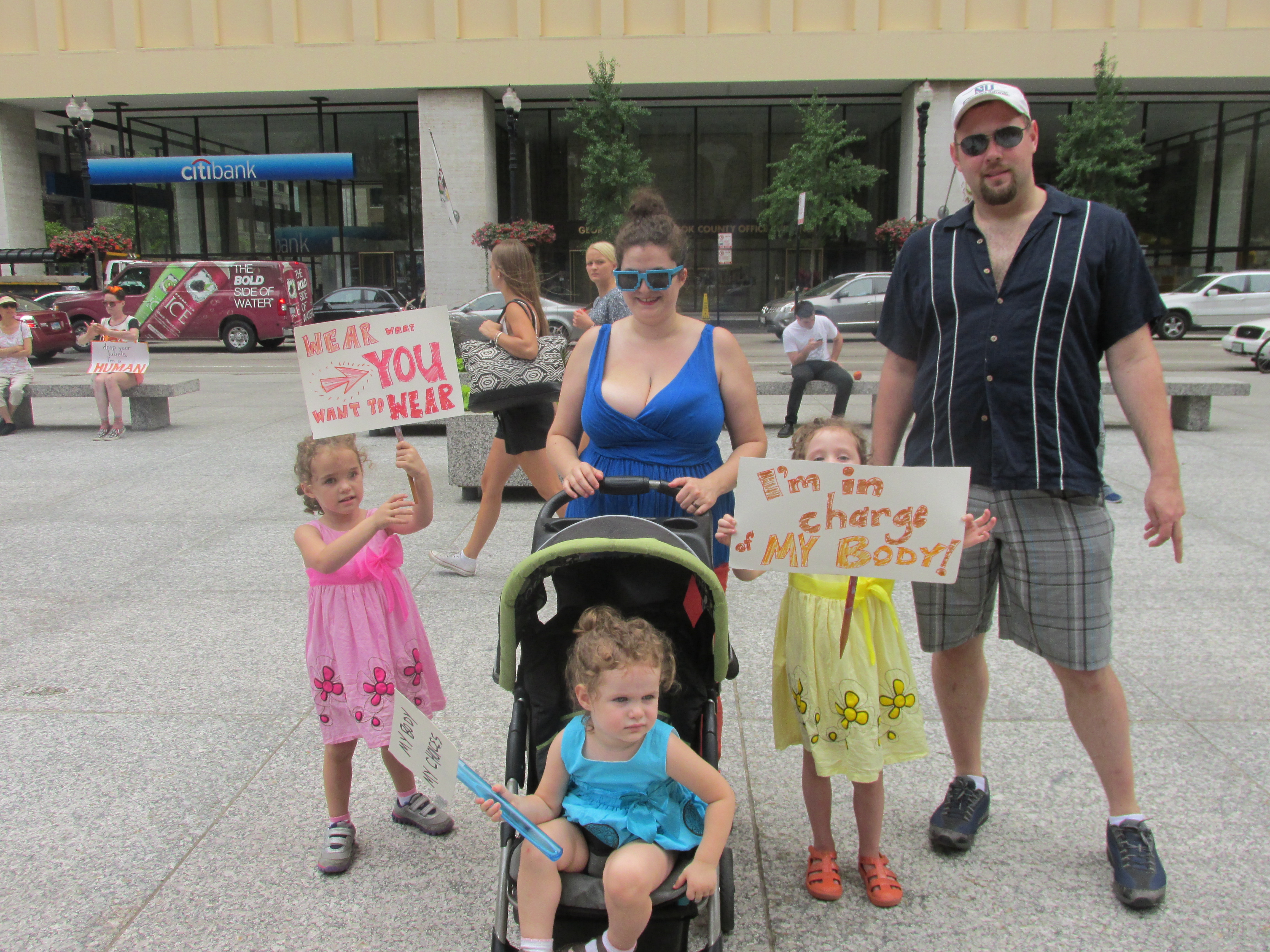I WANT MY CHILDREN TO FUCK UP, Says Lea Grover
My husband had an idyllic childhood. He lived in one house nearly his whole life, where he and his sister played ball in the yard, biked around the neighborhood, and generally met or exceeded the reasonable but strict expectations set by their parents. They got good grades, participated in competitive sports, graduated high school is excellent standing and went on to prestigious universities to pursue careers in fields that both paid and interested them.

I think about my husband’s childhood as one long episode of “Leave it to Beaver,” and relate to it about as much. Mine was more like an after-school special. While he has stories of stern parents waiting if he was one minute late for his 10pm curfew, I have stories of my friends and I calling our parents from the police department to be picked up in the wee hours of the morning.
His middle-school experience involved little league championships, mine involved adults who should have known better dealing acid and ecstasy to twelve and thirteen year olds in the attic of my parents’ garage.
My parents didn’t know about what my sisters and I got up to, and I think it was a choice to intentionally not know. My older sister led the pack for us, foraying into alcohol, hard drugs, sex, and professional partying, and she took us along for the ride. She would run away for months at a time to hop trains, leaving my younger sister and I with a vacuum of chaos to fill by ourselves (which we did with aplomb).
My older sister was a rebel of epic proportions—flaunting the line between being a rebellious kid and a lunatic genius. No rules could stop her. No consequences deter her. When my parents realized the best way to ensure her safety was to stop putting up barriers for her to smash through, my younger sister and I were essentially grandfathered into a sort of blind permissiveness. None of us graduated from any kind of traditional high school, not that it stopped us from achieving profound academic success in college.

And, when I moved off to campus, I became a den mother of sorts, already over and done with the binge drinking, drug experimentation, and the hyperactive sex drives of my eighteen-year-old cohort. I’d tired out on partying, safe in my parents’ garage. While my new friends drank until they passed out or hooked up with older boys and confused new lust with true love, I did my homework and made them cups of ramen to cure their hangovers, clicking my tongue and recounting tales of nearly being an accessory to kidnapping, wild orgies in closed movie theaters, or finding myself in the midst of an acid trip with a box of watercolors when I was fifteen.
When I tell my husband about my youth, he stares at me like I’m a cautionary tale, but I’ve turned out fine. I’m quirky, definitely not someone to blend into a crowd. But I wasn’t brutally maimed, didn’t suffer brain damage, didn’t fall into addiction or violent crime. Instead, I became the person he fell in love with—quirky but grounded, compassionate and open minded, and fiercely loyal to the people in my life. I mostly spent my adolescent years walking around town in the middle of the night, chain smoking cigarettes, picking roses from neighbor’s gardens and leaving them on friends’ doorsteps. Nowadays, my curiosity and affection have more constructive outlets, but they’re all the stronger for having given them room to grow.
After I dropped out of high school at fourteen, I began community college at fifteen, and transferred to a four-year university the same time my friends joined their freshman classes. One of my sisters went on to pursue her Ph.D. All of us are productive members of society. All of us are supporting ourselves in a way that fulfills us. All of us are pursuing goals and passions, because all of us are as functional as any other adults you see day to day. Taking some time in our youths to completely screw up our lives, by traditional definition, didn’t hurt us much.
What sounds to my husband like juvenile delinquency feels to me peaceful, almost healthy, and sane. The idea of a teenaged girl spending all night wandering the city without a chaperone is enough to make my adult nerves stand on end, but I know it can be done safely, giving that teenager time to herself to read, explore architecture, and contemplate the human condition. When I see teenagers walking around in the costume of angst, I don’t worry that they’re up to no good, I feel a nostalgic pride that they’re finding their authentic selves by abandoning the norms they’ve been forced into without question. When a fellow parent expresses misery that their teen is rebellious, that they’re experimenting with drugs or alcohol, or dating, I cluck sympathetically… but inside, I’m applauding their child for trying something new, and doing it in a way that’s safe enough their parents can catch them. My husband, on the other hand, is mortified at the idea of coming home one day to find our daughters have broken into the liquor cabinet, or are experimenting sexually with other teens. He’s determined that we will never have the party house, the secret gathering place for fifteen year old pot dealers and kids determined to drink their way through junior year, I often shrug off his concerns, as well. As far as I’m concerned, that type of experimentation is a part of learning how diverse the experiences of the world can be. I’m not going to turn a blind eye to illegal or immoral behavior, but you can provide other outlets for this creative exploration. Books, travel, film, and theater can be just as exciting—but you have to approach these topics organically. You can’t simply pull a condom out of a kid’s hand, replace it with a novel, and expect them to behave differently. You have to give them opportunities to come to information, self expression, and then self discovery on their own terms. For my husband, that means registering them in classes and team sports, and going on structured family vacations. For me, it means letting them go free to mess themselves up a bit.

Our conflicting perspectives don’t make too much of a difference when it comes to our relationship. Our values are identical, our passions coincide, we share the same sense of humor. Those are the things that matter the most in building a happy partnership. And when it comes to co-parenting, we agree on the basics as well. We want our kids to achieve, but we focus on instilling a sense of social justice and fairness as well as personal ambition. Where we do have differences are in our expectations for our children to follow the guidelines society sets for what is and is not acceptable of youthful rebellion.
My husband wants to set firm rules and boundaries, regarding drugs, alcohol, and sex. I prefer to have conversations about consequences and safety, and trust our kids to make their own decisions. I want to give them all a thorough education and answer every uncomfortable question, but I believe youthful experimentation is healthy. Kids should be permitted to fail once in a while, to learn hard lessons on their own. I believe that although it’s my job to protect my children, it’s not my job to protect them from learning to protect themselves.
My husband’s childhood was all about teamwork. His friends were a team. His school was a team. He was on football and baseball and basketball teams. His family was a team.
My family never felt like a team. We often felt like we were prisoners of a shared catastrophe, and our camaraderie sometimes seemed like Stockholm Syndrome. As loving and compassionate as all of us were, our family was dysfunctional, and clinging to it for stability was as futile as knitting an umbrella. Still, I love my sisters and parents, and I have few resentments from those years. Yes, I acquired a few scars. Yes, I found myself in dangerous situations. Yes, I committed illegal acts. Yes, I even committed immoral acts. But I came away from all those experiences better for them. More compassionate. More understanding. Stronger. Braver. Smarter. Wiser. With stories to tell.
My husband will never understand what it’s like to be a victim of a sometimes toxic, although loving, family dynamic. It’s something he doesn’t want for our family. It’s something I don’t want for our family either. I would like for us to be a team. But not the way his family was.
I want us to be a team the way the Avengers are a team. Where every member has their own skills, their own agenda, and their own movie where they’re the star. I want our children to have the freedom to explore themselves and their world the way I did, but maybe with some of the safety net of my husband’s childhood. With the stability of a family holding together, not bound together.
I don’t know if it’s possible to find that balance.
I believe part of growing up is to allow them to experience risk, real risk. And as safety is the absence of risk that means there must be danger. That means I want, on some level, for my children to make bad choices, preferably while they still live under my roof and I am able to be there to counsel them through the aftermath.
We have to find a place in between where we can agree, and fortunately, we still have a few years. But I wonder if there is such a place, where there are both rules and freedom.
I doubt there ever has been.

Featured photo, “Hot and Cold,” by Apionid, Flickr Creative Commons License






2 Responses to I WANT MY CHILDREN TO FUCK UP, Says Lea Grover